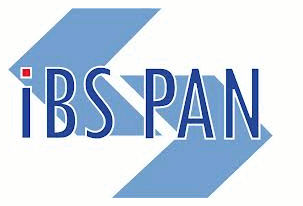 |
7th International Workshop on Smart Energy Networks & Multi-Agent Systems (SEN-MAS'19)
Leipzig, Germany, 1 - 4 September, 2019
Our energy supply infrastructure is in the middle of a transition from a conventional star-like energy supply topology with a manageable number of well-structured power plants towards a grid topology with a myriad of different generation units that are geographically widely distributed. Additionally, the increasing integration of volatile and intermittent renewable energy resources brings massive challenges to grid operations and its composition with respect to power system commitment, dispatching and reserve requirements.
The fact that renewable energy generation units will increase their share in the overall energy production, calls for technologies to be developed in the next decades to deal with the transition of the energy supply system and the distribution of renewable energy generation units. This includes technologies to integrate, handle and intelligently manage energy storage systems, grid load peak-shaving, smart supply system components, more efficient and intelligent coupling of heating with electrical power, heat storage, intelligent load shifting and balancing, to name only a few here.
All these have in common that the future power grid has to be intelligent, where generation and consumption units communicate or even negotiate their offer or their demand of energy through an ‘internet of energy’. Thus, to efficiently design and develop those distributed energy management systems is one of the key challenges to be solved to transform the energy supply system, addressing distributed coordination, as well as different forms of energy like electricity, heat, natural gas and other.
Information and communication technologies are the key enablers of such envisioned systems, where especially the agent-paradigm provides an excellent modelling approach for the distributed character of energy systems. Although significant efforts and investments have already been allocated into the development of smart grids, there are, however, still significant research challenges to be addressed before the promised efficiencies or visions can be realised. This includes distributed, collaborative, autonomous and intelligent software solutions for simulation, monitoring, control and optimization of smart energy networks and interactions between them.
Topics
The SEN-MAS'19 Workshop aims at providing a forum for presenting and discussing recent advances and experiences in building and using multi-agent systems for modelling, simulation and management of smart energy networks. In particular, it includes (but is not limited to) the following topics of interest:
- Experiences of Smart Grid implementations by using MAS
- Applications of Smart Grid technologies
- Distributed energy management of distributed generation and storage based on MAS
- Examples of design patterns for MAS in distributed energy management systems
- Microgrids, Islands Power Systems
- Real time control of energy networks
- Distributed planning process for energy networks by using MAS
- Self-configuring or self-healing energy systems
- Load modelling and control with MAS
- Simulations of Smart Energy Networks
- Software Tools for Smart Energy Networks
- Energy Storage
- Electrical Vehicles
- Charge scheduling for electric vehicles (and fleets) based on MAS
- Interactions and exchange between networks for electricity, gas and heat
- Stability in Energy Networks
- Distributed Optimization in Energy Networks
- Safety and security issues for MAS in Smart Grids
Paper submission
- Authors should submit draft papers (as Postscript, PDF or MSWord file).
- The total length of a paper should not exceed 10 pages IEEE style (including tables, figures and references). IEEE style templates are available here.
- Papers will be refereed and accepted on the basis of their scientific merit and relevance to the workshop.
- Preprints containing accepted papers will be published on a USB memory stick provided to the FedCSIS participants.
- Only papers presented at the conference will be published in Conference Proceedings and submitted for inclusion in the IEEE Xplore® database.
- Conference proceedings will be published in a volume with ISBN, ISSN and DOI numbers and posted at the conference WWW site.
- Conference proceedings will be indexed in BazEkon and submitted for indexation in: Thomson Reuters - Conference Proceedings Citation Index, SciVerse Scopus, Inspec, Index Copernicus, DBLP Computer Science Bibliography and Google Scholar
- Extended versions of selected papers presented during the conference will be published as Special Issue(s).
- Organizers reserve right to move accepted papers between FedCSIS events.






